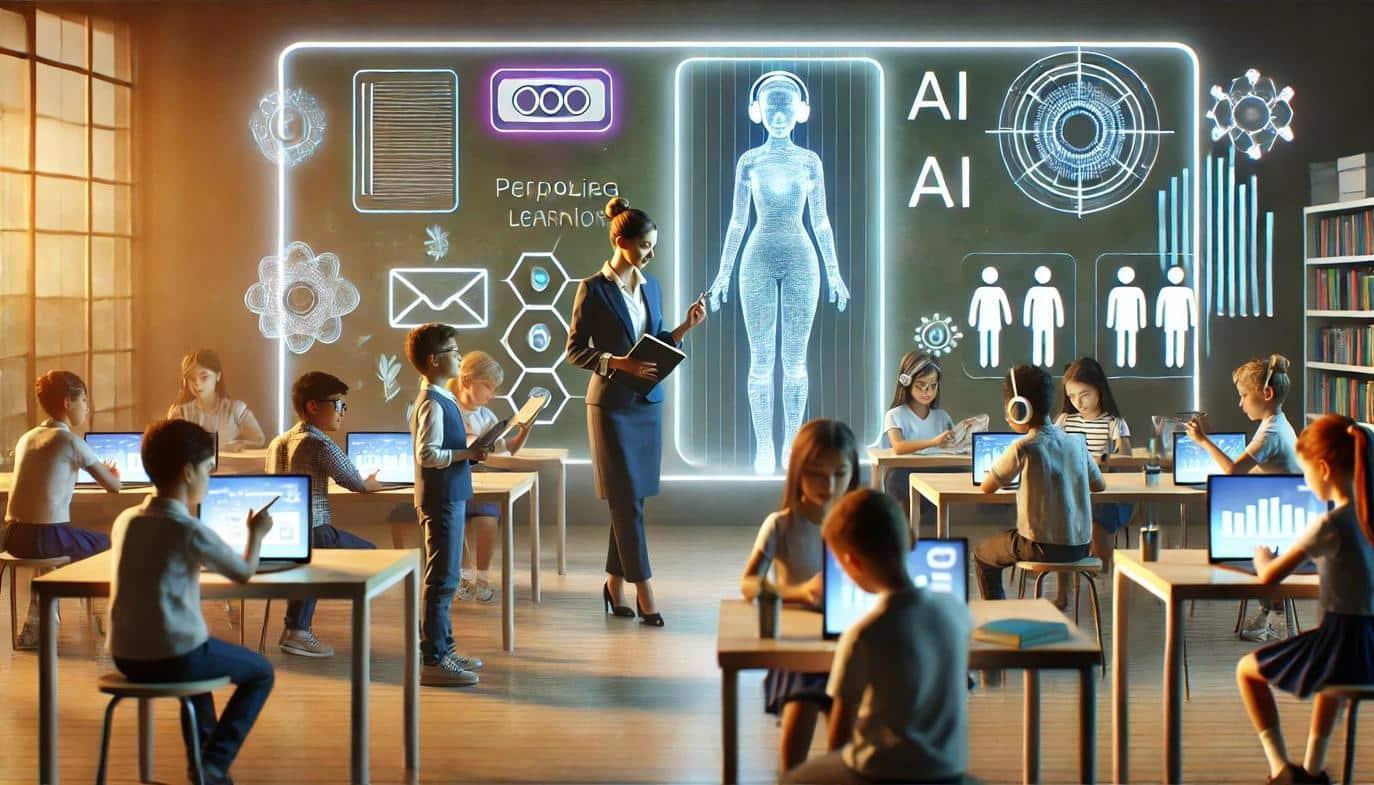Empowering Educators: Essential Training for AI-Integrated Classrooms
AI is rapidly transforming the educational landscape. from personalized learning paths to automated grading, Artificial Intelligence is reshaping the way teachers teach and students learn. However, to truly unlock AI’s potential, educators need more than just access to technology; they need targeted, ongoing training. In this complete guide, we’ll explore how empowering educators through essential training paves the way for thriving AI-integrated classrooms.
Why AI in Education Matters
Integrating Artificial Intelligence into classrooms carries profound opportunities—and challenges. When implemented thoughtfully,AI tools can boost learning outcomes,alleviate administrative tasks,and foster creative teaching approaches. But without adequate preparation, educators risk feeling overwhelmed and underprepared.
- Personalized Learning experiences: Tailor content and pacing to individual student needs.
- Efficient Assessment Automation: Save teachers time with instant grading and data analysis.
- Classroom Engagement: Leverage adaptive and interactive AI platforms to spark curiosity.
- Accessibility: AI-powered tools support diverse learners, including those with special needs.
The Need for Essential Training in AI-Integrated Classrooms
Despite growing investment in digital classroom solutions, a significant training gap remains.according to the International Society for Technology in Education (ISTE), many educators lack the skills or confidence to use AI tools effectively and ethically.
Key Skills for Teachers in AI-Integrated Classrooms:
- Understanding AI concepts and limitations
- Navigating adaptive learning technologies
- Evaluating and selecting trustworthy AI educational tools
- Promoting digital citizenship and critical thinking regarding AI
- Ensuring data privacy and ethical AI usage
Empowering educators with these skills is a crucial investment, not only for technology adoption but also for shaping responsible and innovative generations of learners.
Essential Elements of AI Training for Educators
To prepare teachers for AI-integrated classrooms, training programs must go beyond basic instructional technology tutorials. Here are the core components of effective AI professional growth:
1. Foundational AI Literacy
- What is AI? – Understanding AI’s capabilities and limitations
- Common AI Tools in Education – Exposure to adaptive learning platforms, smart tutoring systems, and classroom management AI
- Demystifying AI – Clearing misconceptions and reducing technophobia
2. Ethical and Responsible AI Use
- Protecting student data and privacy
- Identifying bias and ensuring fairness
- Upholding transparency surrounding AI-driven decisions
3. Practical Classroom Integration
- Designing AI-enhanced lesson plans
- Personalizing instruction with adaptive tools
- Efficiently managing administrative tasks using AI
4. Continuous Support and Collaboration
- Peer learning communities and professional networks
- Ongoing virtual workshops and updated resources
- Opportunities for experimentation and feedback
Case Studies: Success Stories from AI-Integrated Classrooms
Schools and districts worldwide are reaping the benefits of educator training for AI. Here are some standout examples:
Case Study 1: Charlotte-Mecklenburg Schools, North Carolina, USA
Charlotte-Mecklenburg Schools implemented comprehensive AI training for teachers. After introducing adaptive literacy platforms paired with regular professional development, educators reported:
- Increased student engagement
- More confident technology integration
- Noticeable improvements in reading comprehension scores
Case Study 2: The European Schoolnet Academy Initiative
Across Europe, the Schoolnet Academy launched an online course series for AI in education. Teachers who participated cited benefits such as:
- Enhanced understanding of both AI opportunities and risks
- advanced lesson design skills using AI tools
- Greater collaboration with fellow educators for best practices
Practical Tips for AI-Integrated Teaching
Whether you’re a classroom teacher, instructional coach, or school leader, here are actionable steps to get started with AI in the classroom:
- Start Small: Pilot one or two AI tools, such as adaptive quizzes or virtual tutoring bots, before scaling up.
- Participate in Training: Seek out workshops or online courses specific to AI in education—many are free or offer certification.
- foster Open Dialog: Encourage students to ask questions about how AI works and discuss its implications in society.
- Prioritize Ethics: Always review privacy policies and ensure tools you use uphold student data protection standards.
- Collaborate: Join educator forums,webinars,or local EdTech groups to share experiences and tips.
- Assess impact: Regularly evaluate how AI tools are affecting learning outcomes and student engagement.
Overcoming Challenges in AI-Integrated Classrooms
Success with AI in education isn’t without hurdles. Here are common challenges—and strategies to overcome them:
-
Tech Skepticism & Resistance:
Build trust through clear communication and showcase positive impact via pilot programs.
-
Resource Gaps:
Advocate for equitable funding, and utilize open-source or low-cost AI tools wherever possible.
-
Keeping Up with Rapid Change:
Establish professional learning communities dedicated to ongoing AI updates and experiments.
-
Balancing AI with Human Touch:
Emphasize that AI is a support—never a substitute—for the teacher’s unique expertise and empathy.
Future-Proofing Teachers: Building Sustainable AI Skills
The classroom of tomorrow demands teachers who are adaptable, curious, and proactive. Ongoing AI professional development will be key to meeting the needs of a changing digital society. districts and policymakers should prioritize:
- Long-term training investments, not just one-off workshops
- Certified programs and micro-credentials in AI pedagogy
- Mentoring and peer support systems
- Promoting teacher leadership in EdTech adoption and evaluation
Conclusion: Investing in Teacher Empowerment for the AI Era
Empowering educators with essential AI training is the cornerstone of successful, equitable, and inspiring digital classrooms. By bridging the skill gap, supporting ethical practices, and creating communities of lifelong learners, we equip both teachers and students to thrive in an AI-augmented world.
As AI continues to evolve, the role of the teacher grows ever more vital—not as a mere facilitator, but as a guide, innovator, and champion for responsible technology use. By investing in comprehensive training, we’re not only future-proofing education—we’re empowering educators to spark curiosity, cultivate critical thinkers, and unlock every learner’s potential in the age of AI.

